Change is on the air: The state of Wisconsin talk radio in 2024
Suburban Milwaukee conservative talk has dominated radio airwaves around Wisconsin for more than three decades, but lots of changes are happening in a crucial swing state in a contentious election year.
Wisconsin Watch
October 15, 2024
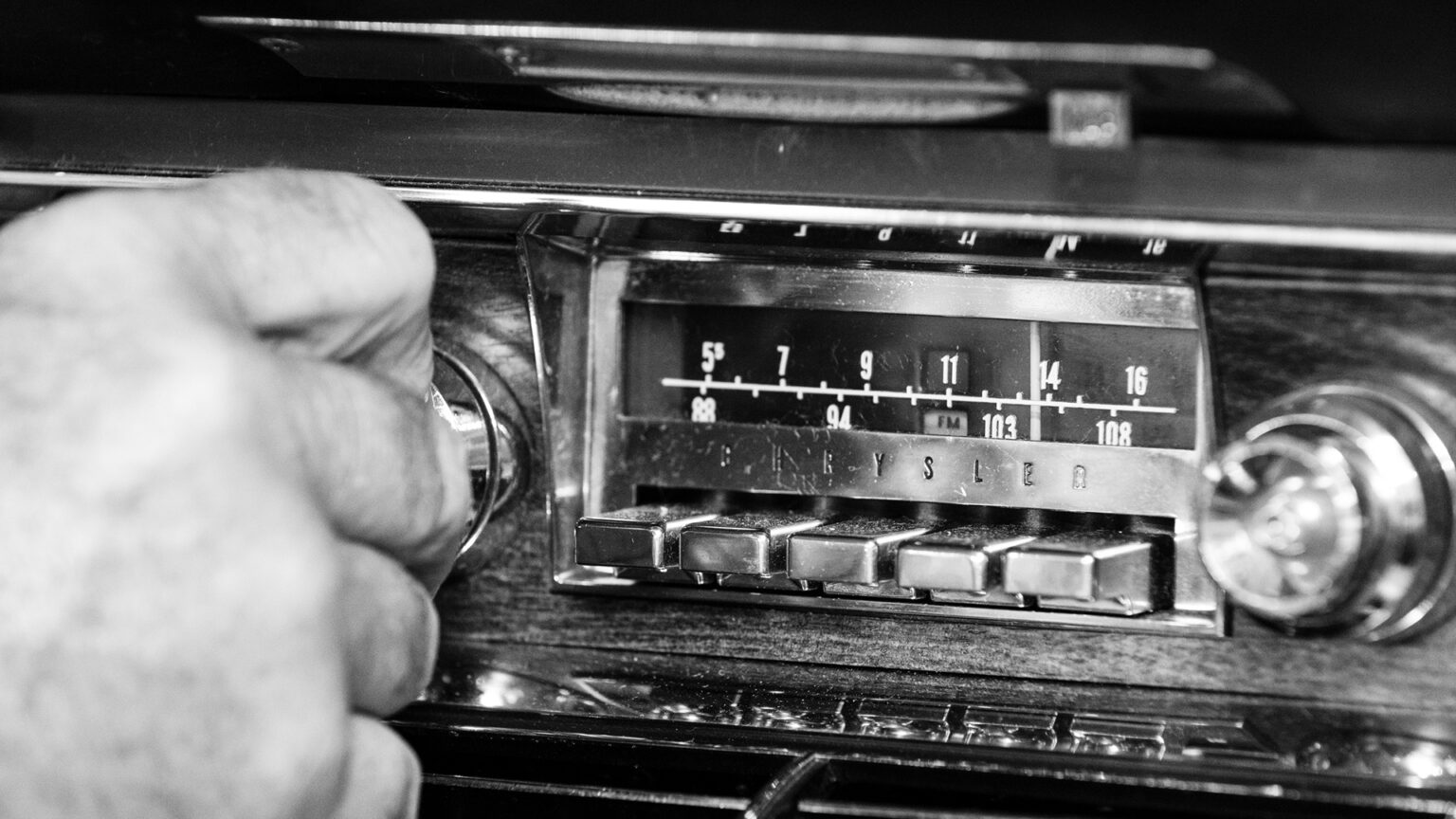
According to 2023 Pew research, 8% of U.S. adults prefer to get their local news through the radio, and 82% of Americans aged 12 and older listen to terrestrial radio in a given week. In Wisconsin, conservative talk dominates the airwaves. (Credit: Photo illustration by Joe Timmerman / Wisconsin Watch)

This story was originally published by Wisconsin Watch.
Since May 20, radio listeners haven’t been able to tune in to Wisconsin Public Radio’s local political talk programs The Morning Show and Central Time during their morning and afternoon commutes.
A major WPR network restructuring replaced those shows with nationally syndicated programs and ended local news programming on its single Milwaukee station in favor of classical music. Local hosts Kate Archer Kent and Rob Ferrett had their more than three hours of weekday content merged into a single hour. Ferrett, whose “Central Time” show reached 100,000 listeners a week, said the change reflected listeners increasingly shifting to online media.
“We are deeply invested in radio, and you know, part of the reason WPR has been here for 107 years is because we made changes,” WPR spokesperson Jeffrey Potter said.
WPR isn’t the only radio network making big changes in the runup to the 2024 presidential election in a state where the winner of the presidential vote has won the White House in the last four elections.
A tech entrepreneur has spent almost $10 million buying up stations to provide center-left counterprogramming across Wisconsin through a new network called Civic Media. WTMJ, the Milwaukee radio station that once gave a platform to Charlie Sykes, one of the pioneers of conservative talk radio, is shifting to the center. And fresh conservative voices in rural areas have emerged to wield influence over local politics and the presidential election.
Conservative talk radio, which for decades has marshaled talking points and votes for Republicans, especially in the Milwaukee suburbs, still dominates the airwaves. Wisconsin Assembly Speaker Robin Vos, R-Rochester, called conservative talk radio “as powerful as it’s ever been.”
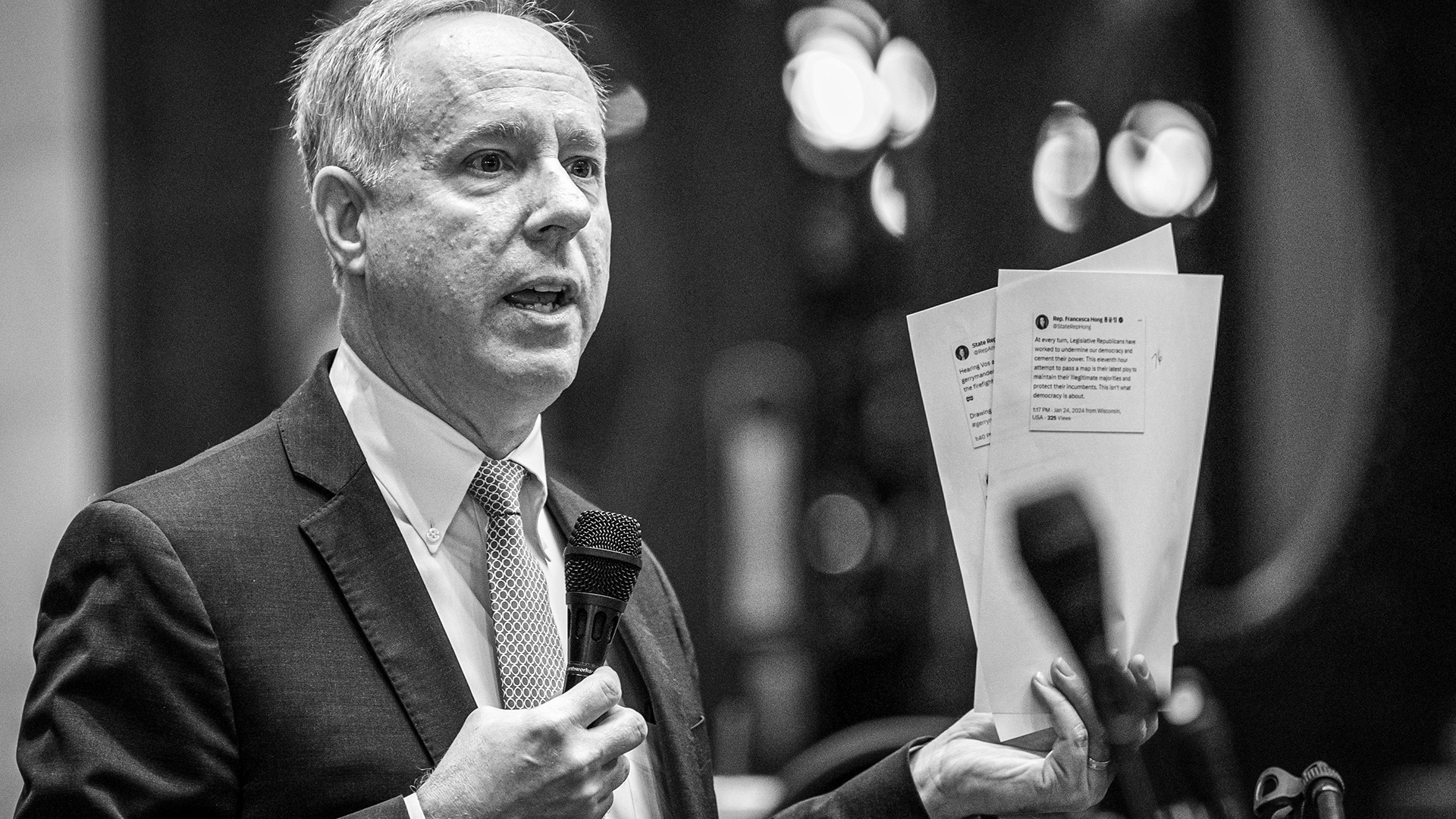
Wisconsin Assembly Speaker Robin Vos, R-Rochester, called conservative talk radio “as powerful as it’s ever been.” Vos is seen addressing the Assembly on Jan. 24, 2024, at the Wisconsin State Capitol in Madison. (Credit: Andy Manis for Wisconsin Watch)
Host Mark Belling announced earlier in 2024 that WISN in Milwaukee had the largest local audience share in the nation.
“Other conservative stations around the country don’t do anywhere near as well as us because our hosts are outstanding,” Belling wrote.
In a new series, student journalists at the University of Wisconsin-Madison, led by Wisconsin Watch State Bureau Chief Matthew DeFour, explore all of those changes. The students who collaborated on this series include: Benjamin Cadigan, Hallie Claflin, Meryl Hubbard, Ray Kirsch, Frankie Pica, Ashley Rodriguez, Andrew Schneider, Sophia Scolman, Paige Stevenson and Omar Waheed.
As part of the project, the students fact-checked six radio hosts with viewpoints spanning the political spectrum. What they found is a problem that speaks to the current political moment: The two hosts spreading the most misinformation broadcast on the station with record ratings. The only host with zero inaccurate statements was the only one whose show has since been canceled, WPR’s Ferrett.
Ferrett said his goal with Central Time was to leave listeners feeling educated, not angry.
“For partisan talk, conservative or liberal, the host can be the content because they have a perspective and point to make,” Ferrett said. “I don’t, so you can’t just fill the clock by me going on a rant for 20 minutes, because I can’t rant in this position. I don’t have anything to say anyway.”
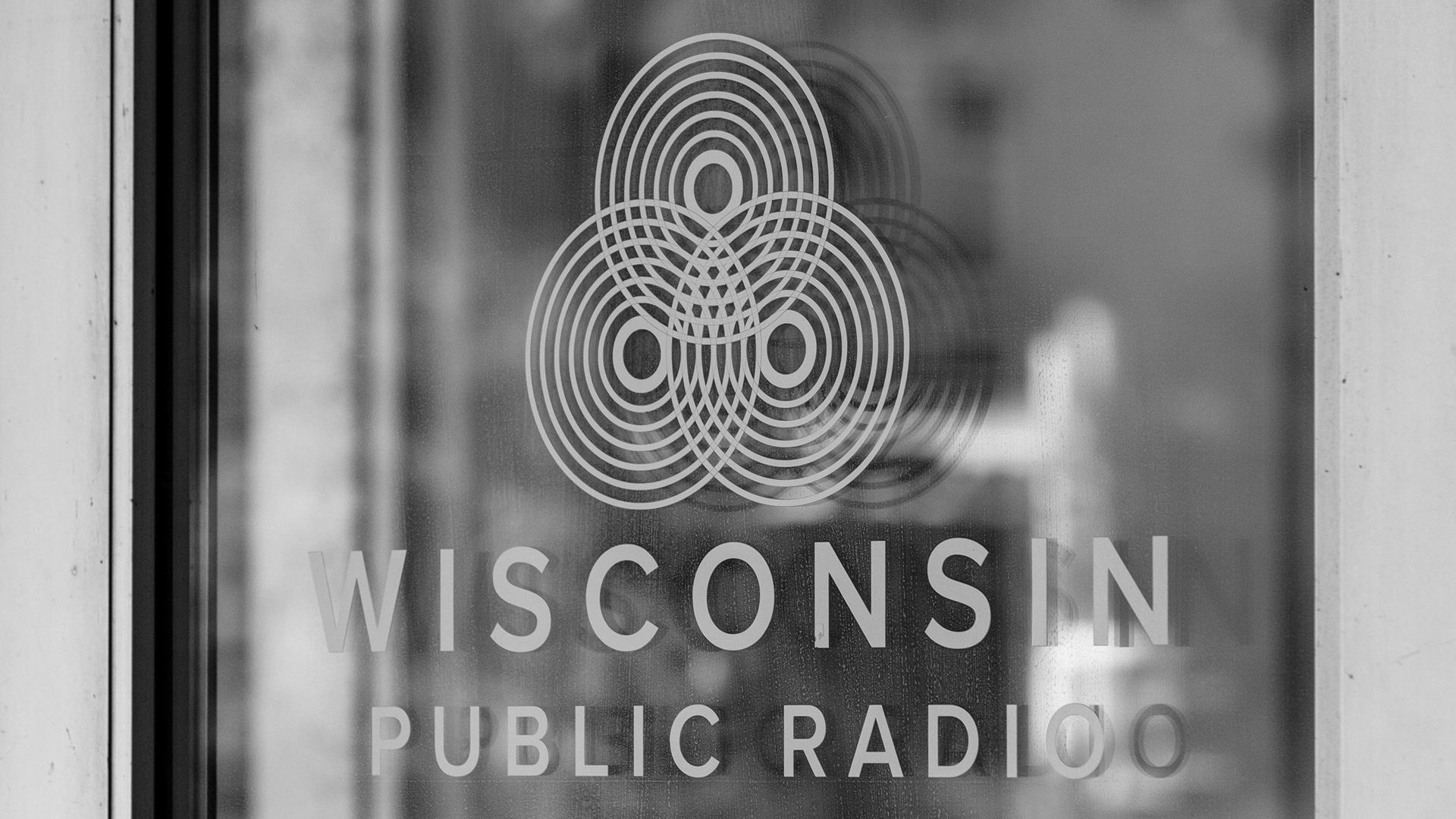
Wisconsin Public Radio made changes to its programming schedule earlier in 2024, ending its “Central Time” and “The Morning Show” programs in favor of nationally syndicated shows. (Credit: Joe Timmerman / Wisconsin Watch)
Though terrestrial radio listenership nationwide has declined slightly in recent years, coinciding with the growth of podcasts and a reduction in commuting since the pandemic, 82% of Americans aged 12 and older still listen to terrestrial radio in a given week, according to 2023 Pew research.
In 2022, 14% of Wisconsin Republicans said they regularly listened to local talk radio programs compared with only 5% of Democrats, according to a report from UW’s Center for Communication and Civic Renewal.
That’s in part because WISN and WTMJ, both 50,000-watt stations, cover most of Wisconsin, solidifying their popularity among conservative listeners, said Lewis Friedland, an emeritus affiliate in the University of Wisconsin School of Journalism and Mass Communication.
For conservative politicians, getting airtime during election season is a top priority, said Alec Zimmerman, communications director for Ron Johnson’s 2022 reelection campaign.
“From a conservative perspective … if you turn on 1130 WISN in August or July of an election year before the primary, it’s like wall-to-wall candidate primary ads,” Zimmerman said. “It’s the way that you get in front of the most primary voters.”
Enduring significance
Changes at WPR and other networks are hardly the first shakeup in the talk radio world.
The story of modern talk radio began in 1987 with the repeal of the Federal Communications Commission’s Fairness Doctrine, which required broadcasters to provide equal time on air to conflicting viewpoints.
“You could say anything about anyone on the radio … and you still have a right to reply — and (after the repeal of the Fairness Doctrine) you didn’t.” Friedland said. “That allowed stations to put people who had an ideological point of view on the air day in and day out.”
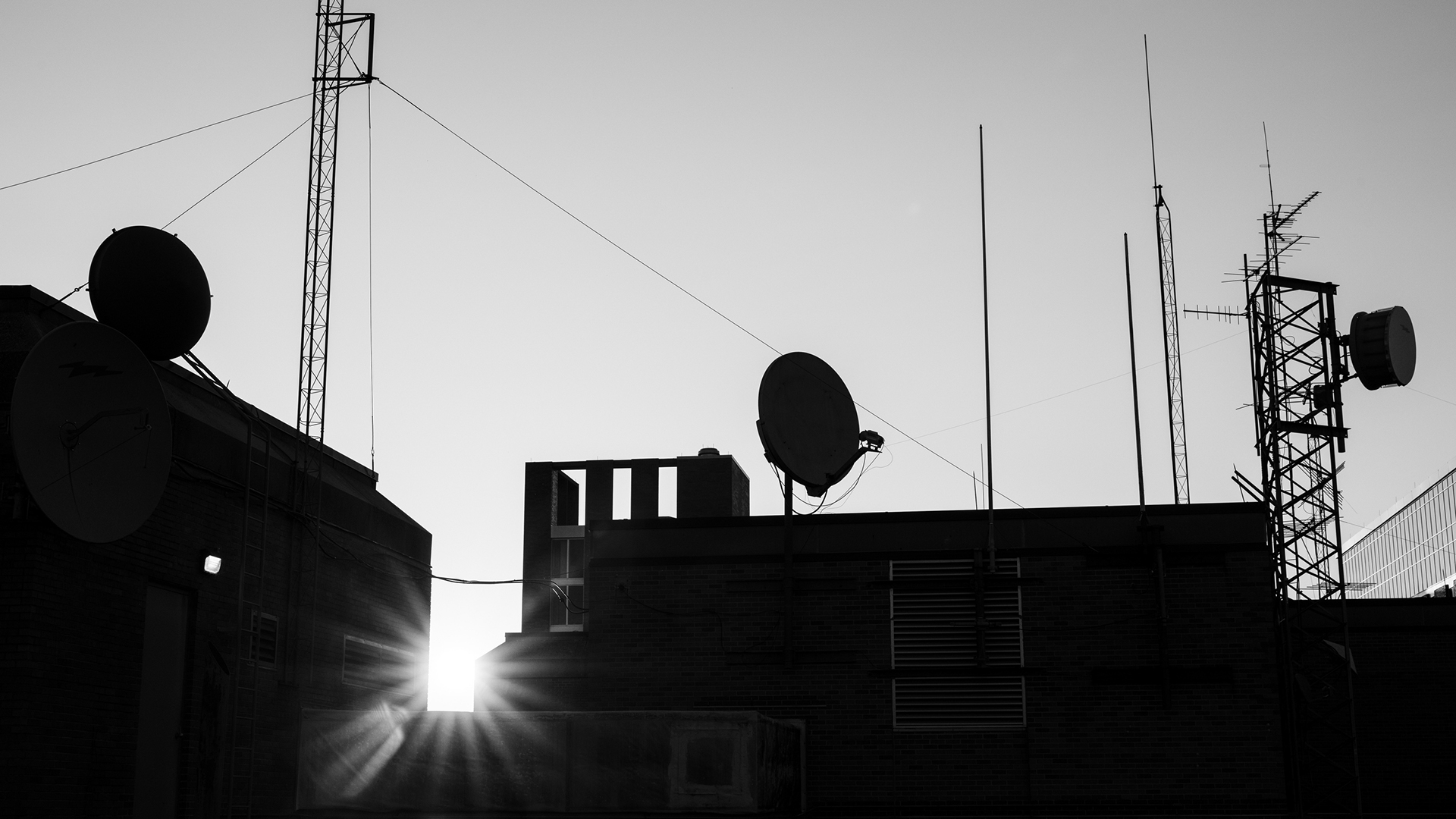
The sun rises behind radio antennas and satellite dishes atop Wisconsin Public Radios studios housed in Vilas Communication Hall on Aug. 13, 2024, in Madison. (Credit: Joe Timmerman / Wisconsin Watch)
Shortly after the Fairness Doctrine’s repeal, The Rush Limbaugh Show began, eventually growing to be aired on more than 600 radio stations nationwide with over 30 million weekly listeners, according to Rush Limbaugh’s personal website.
Limbaugh’s show attacked feminism, the LGBTQ+ community and Democratic politicians with caustic rhetoric that would fit right in at a modern Donald Trump rally. According to his website, the show was the No. 1 talk show in America for 32 years, even being called “the number one voice for conservatism in the country” by Republican President Ronald Reagan.
But Limbaugh, at least initially, said politics didn’t fuel his ambitions.
“I’m trying to attract the largest audience I can, and hold it for as long as I can, so that I can charge advertisers confiscatory advertising rates — this is a business,” Limbaugh told 60 Minutes in 1991.
The show aired until Limbaugh’s death in February 2021, a year after Trump awarded him the Presidential Medal of Freedom.
In Wisconsin, two conservative voices emerged as well.
In 1989, The Mark Belling Show at WISN, thought to be “Milwaukee’s answer to Limbaugh” by Milwaukee Magazine, rose to popularity. One of Belling’s frequent guests and fill-in hosts was Sykes, who would go on to host his own show on WTMJ.
Sykes said in an interview he saw conservative talk radio at the time as an alternative to left-leaning mainstream media.
“I mean, in the beginning, I think that I thought of the radio as just sort of presenting a different point of view, a play forum for debate and conversation,” Sykes said.
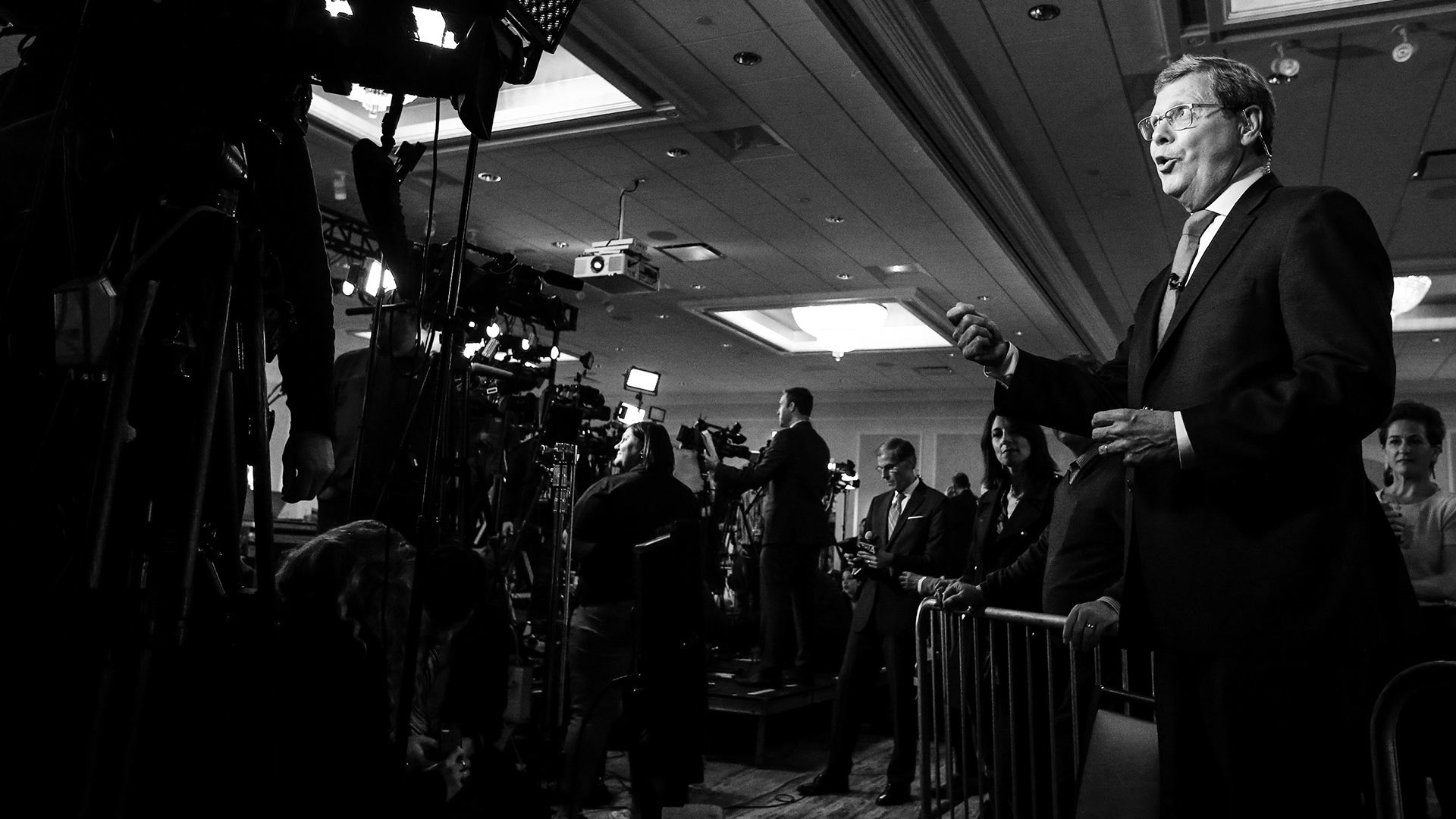
Charlie Sykes does a live TV interview from the campaign night headquarters of Scott Walker on Nov. 6, 2018. Sykes was one of Wisconsin’s early conservative talk radio hosts, but left WTMJ in Milwaukee in December 2016 and went on to found “The Bulwark.” (Credit: C.T. Kruger / Now News Group)
Sykes said that as Milwaukee County became more Democratic and the suburban WOW counties — Waukesha, Ozaukee and Washington — became more Republican, mainstream media outlets stopped reporting on conservative interests.
“I think that that was a tremendous lost opportunity by the media to cover what was happening in the WOW counties,” Sykes said.
During that time a young, ambitious Republican lawmaker named Scott Walker began making regular appearances on Sykes’ show. When Milwaukee County became embroiled in a pension scandal, Walker with an assist from conservative talk radio won a recall election to become Milwaukee County executive in 2002.
“I don’t think there was any secret of the fact that I was pushing Scott Walker and that I agreed with him on a lot of things,” Sykes said.
Friedland said the relationship between the two was “the primary connective of Walker to the rest of the state,” with Sykes’ audience serving as a sounding board for Walker, allowing him to workshop talking points that resonated with conservative voters in Wisconsin.
“There was nothing remotely like that on the left,” Friedland said.
Once Walker achieved his long-term goal of being elected governor, in 2011 he signed into law Wisconsin Act 10, which greatly limited collective bargaining rights for public employees. Today, unions are still working to repeal the controversial act.
“When Walker was elected in 2010, and … ‘dropped the bomb’ … on the teachers union and on labor in general in Wisconsin — that had been developed on Charlie Sykes’ show,” Friedland said. “Without Charlie Sykes, I don’t think there would have been a Scott Walker.”
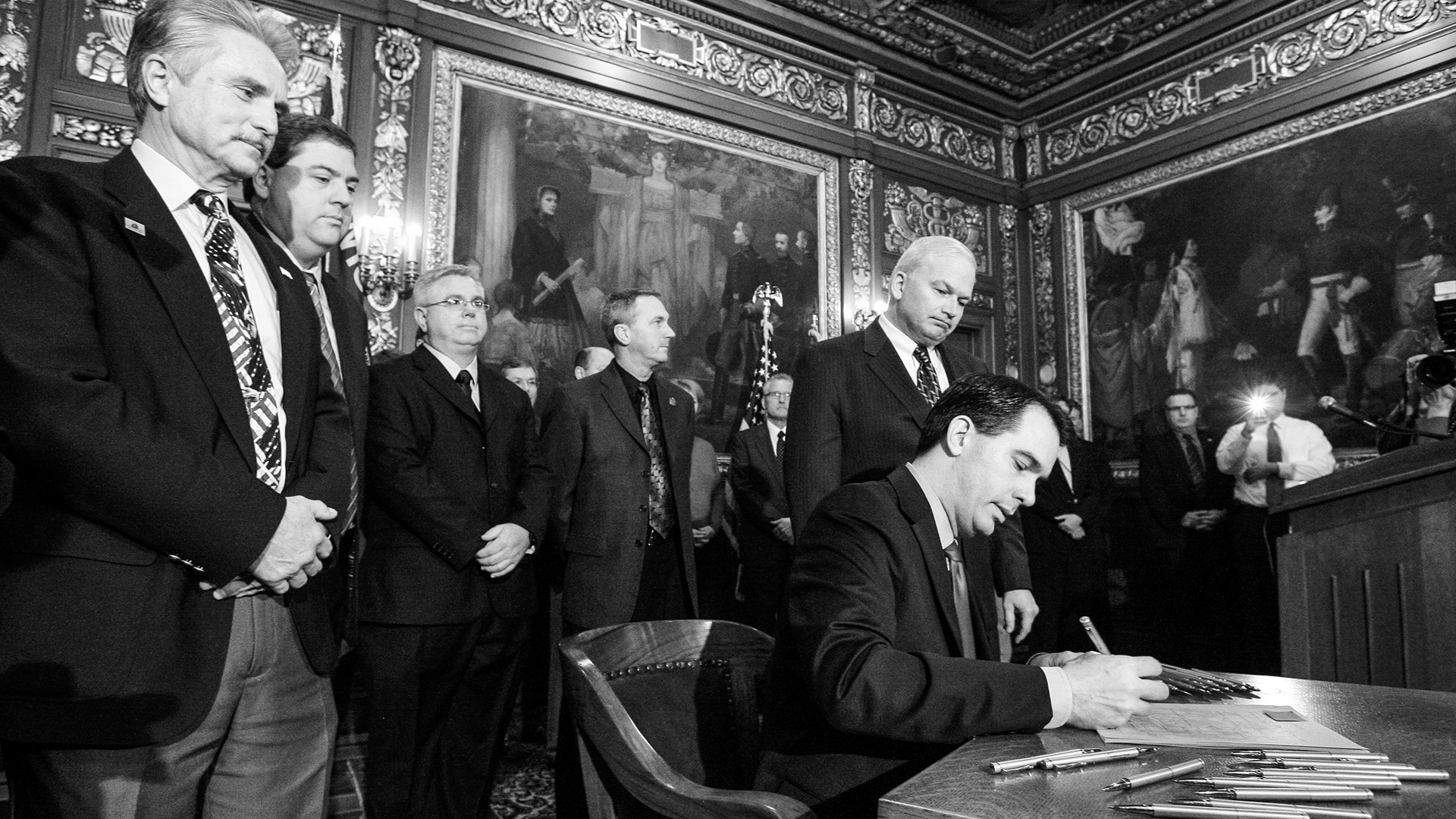
Wisconsin Gov. Scott Walker is surrounded by supporters as he signs 2011 Act 10 on March 12, 2011, at the Wisconsin State Capitol in Madison. (Credit: Gary Porter / Milwaukee Journal Sentinel)
Backlash from the signing of Act 10 included massive protests at the Capitol and the 2012 recall election, which eventually led to the repeal of what was known as the Zapple Doctrine.
The Zapple Doctrine required equal airtime for candidate appearances on entertainment programs. Democratic gubernatorial recall candidate Tom Barrett filed a complaint against WISN and WTMJ for giving Walker supporters free airtime without giving Democrats equal time.
The FCC’s Media Bureau decided in 2014 that the Zapple Doctrine had “no current legal effect” because the regulation was initially based off of an interpretation of the now-defunct Fairness Doctrine.
That allowed stations to broadcast partisan candidates — and their campaign messages — without offering time to their opponents.
Sykes’ influence continued through the 2016 Wisconsin Republican primary, during which he conducted a scathing interview of Trump, who then lost the primary to U.S. Sen. Ted Cruz of Texas. Other conservative hosts also criticized Trump, though after Trump’s win they mostly fell in line to support the new president.
Sykes announced his departure from WTMJ in December 2016, citing personal and professional reasons, according to the Milwaukee Journal Sentinel. By then a “Never Trumper,” Sykes would go on to found The Bulwark, a source of right-leaning, often anti-Trump commentary for “the politically homeless.”
Sykes said by that point, he recognized how right-wing talk shows like his own affected Wisconsin citizens. He felt partly responsible for the partisanship and distrust of traditional news sources that have metastasized since Trump’s first presidential campaign.
“In the beginning, I think I thought of the radio as just presenting a different point of view, a forum for debate and conversation,” Sykes said. “By the end of that tenure, I think it had begun to dawn on me that we had created an alternative reality bubble.”
Share your views on talk radio
Talk radio still wields a lot of power and influence in Wisconsin politics, but the landscape is changing. Investigative journalism students at the University of Wisconsin-Madison in partnership with Wisconsin Watch spent the spring 2024 semester reporting on those changes, resulting in a six-part series: “Change is on the Air.”
One piece missing from that series: the perspectives of radio listeners. Do you listen to talk radio in Wisconsin? Do you listen to both conservative and liberal voices, or do you stay in one media bubble? Do you listen to local or national programs? Or during your commute have you switched entirely to podcasts?
Share your thoughts on the state of talk radio in Wisconsin, and we may publish your response in a future part of our series. Send an email to: [email protected].
 Passport
Passport





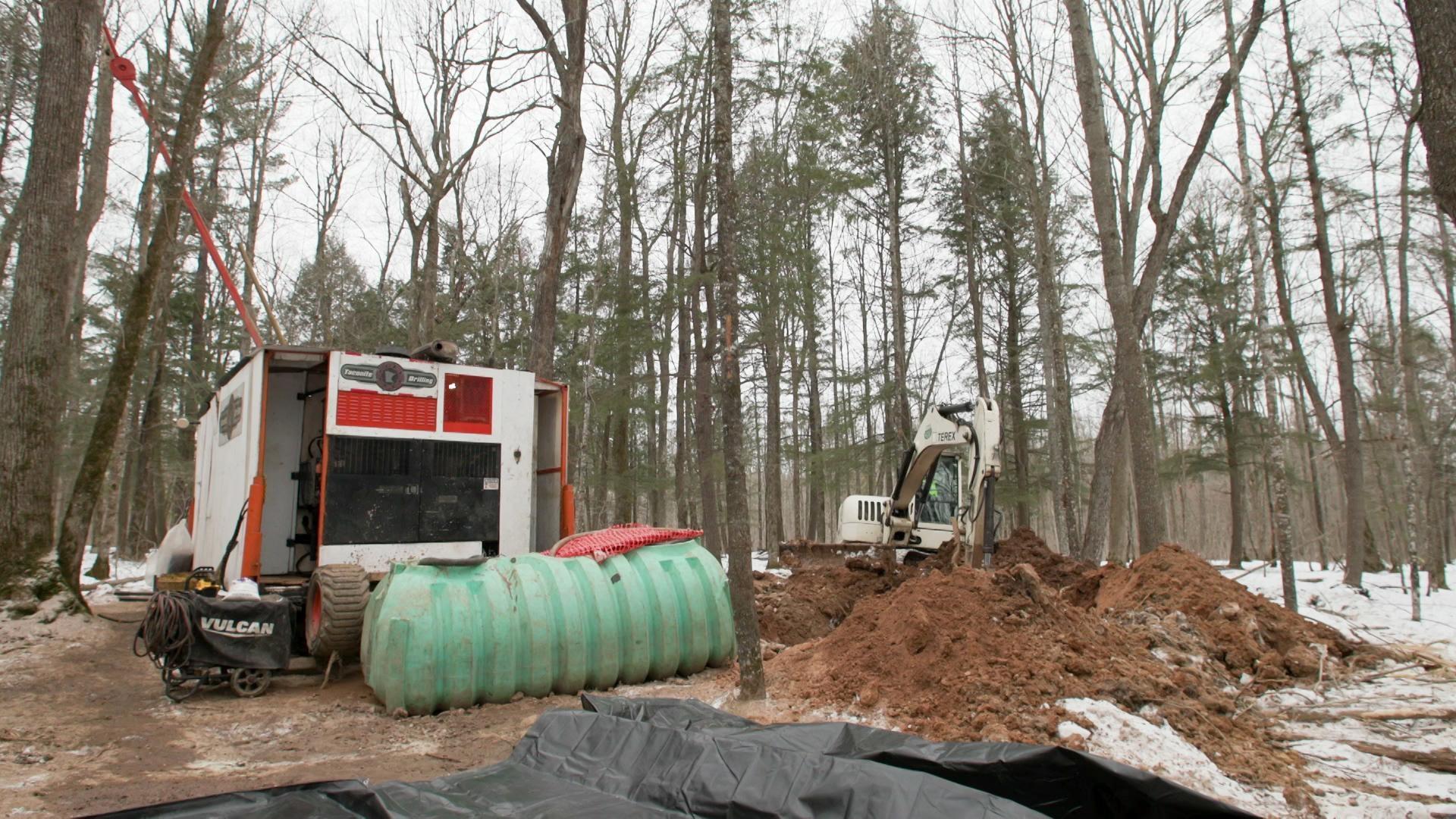
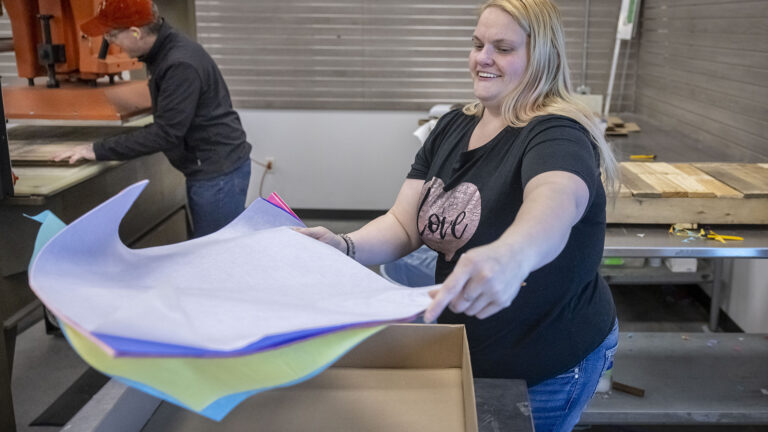

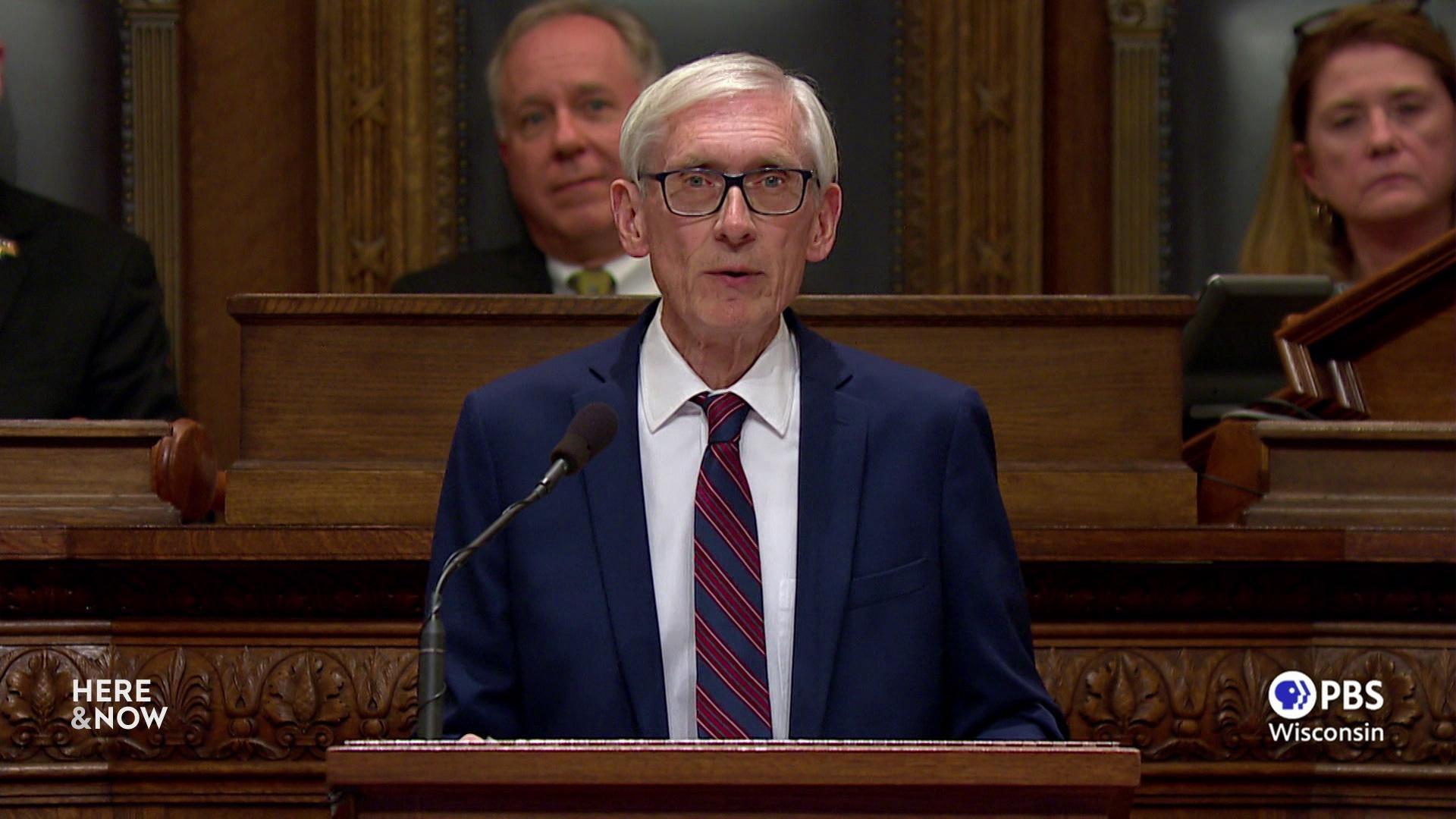
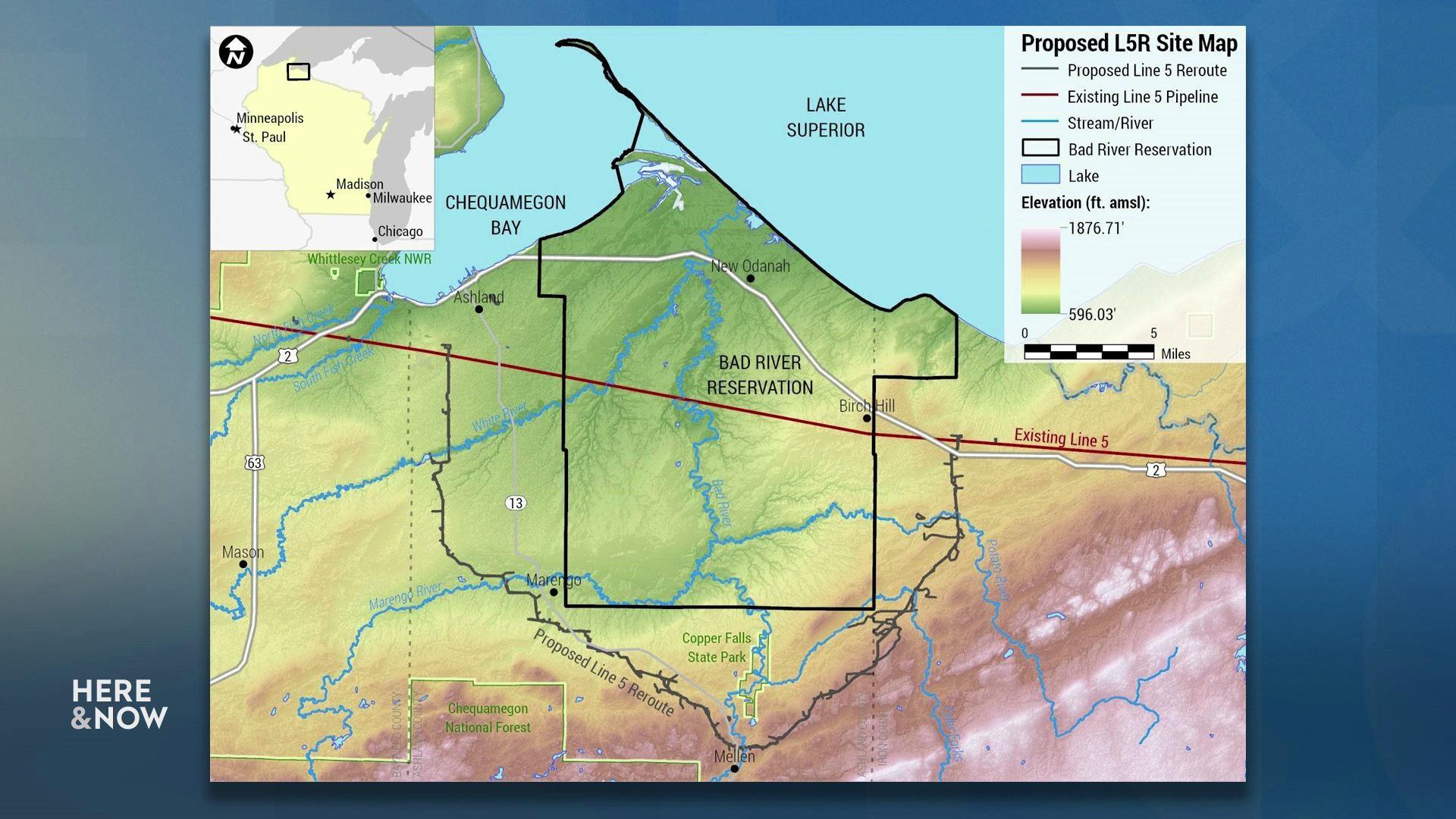

Follow Us